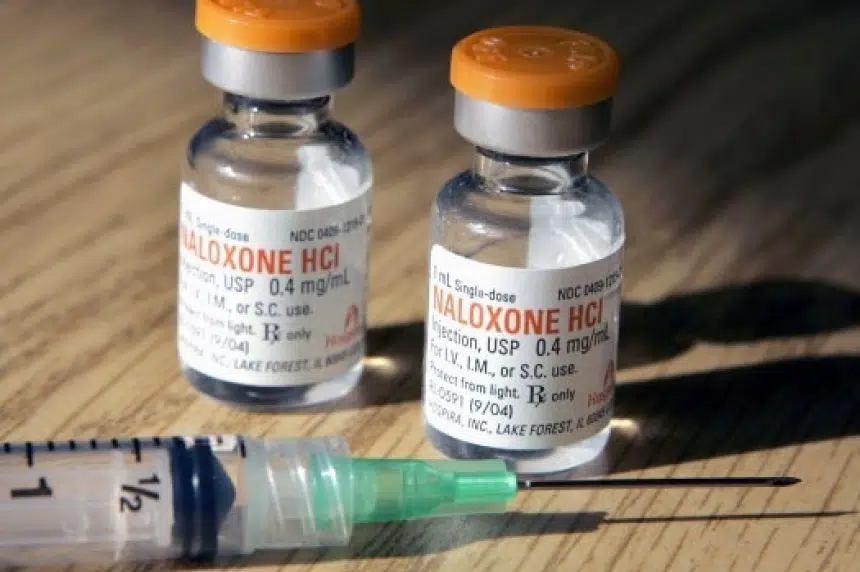Emergency kits that can help reverse an overdose from opioids, like fentanyl, will soon be available in Saskatoon.
The kits are part of a pilot project through the Ministry of Health. Saskatchewan’s Chief Medical Health Officer, Dr. Saqib Shahab, said Saskatoon was chosen because it’s the largest city centre, and because of the recent trouble with fentanyl overdose deaths.
Those struggling with opioid addictions can now get take-home naloxone kits from a pilot site. Previously, only paramedics had access to the overdose treatment, which helps restore a person’s breathing while they are being transported to a hospital.
Shahab called fentanyl a grave concern.
“Even people who think they know how to handle drugs can get a fatal overdose because the way these drugs are produced into pills they can be sold as something else, or may be more than a hundred times the dose that someone might expect.”
The kits will be available only to those with opioid addictions who are likely to use them.
A person would have to go to a provider, be assessed as to whether they would benefit from the kit and be taught how to use it before the kit is prescribed. Family and friends could also be taught to use it.
“It has to ultimately work and that means that means it’s given to people who are potentially at risk and could potentially benefit,” explained Shahab.
Shahab said the kit will only be prescribed to the user and not family and friends.
“Should someone who’s not willing to engage in treatment or harm reduction, should they then get something prescribed for them without their permission,” Shahab asked, noting there are still ongoing discussions about this question.
The kits will be available at the end of December. Some details still need to be ironed out, such as where the kits will be available. Shahab said they want it to be somewhere the users might already be going such as a methadone clinic.
There’s no set timeline for when the pilot project would end. Shahab said they’ll be assessing the usefulness of the program all the way through, seeing if the kits are getting to places where they would be used.
Shahab said the kits cost less than $50 each to produce.
Similar programs have been implemented in Alberta and B.C.
FAMILY GRATEFUL FOR GOVERNMENT ACTION
“I’m really grateful that our provincial government has stepped up in recognizing the brevity of the situation that we’re in, and I really hope that this is just a start,” Marie Agioritis said.
Her son, 19-year-old Kelly Best, died in Saskatoon on Jan. 3 after taking half of a fentanyl pill. She said in her son’s case, a take-home naloxone kit could have saved his life.
“It just depends on whoever he was alone with, are they going to think about him first or themselves first?” she said.
But Agioritis said she does know of families in Alberta who have been able to save their addicted children because of the kits, which work similar to an EpiPen in that the medicine is injected into the body.
She adds it is beneficial for families who know their child is taking opioids, like fentanyl.
“And these are things that shut your respiratory system down. As a family, we know pretty quickly once our kids start getting involved in these drugs.”
The naloxone kits are just as important as education and addictions treatment, Agioritis said.











